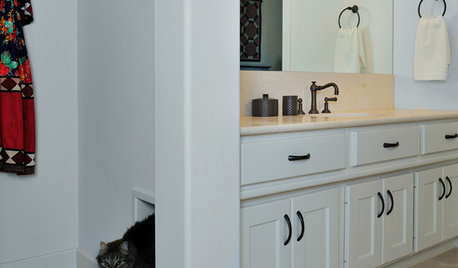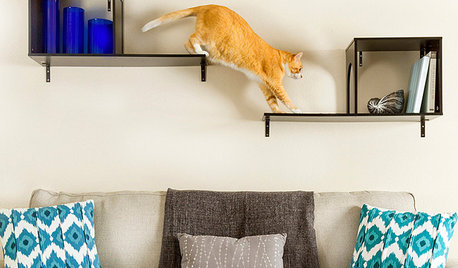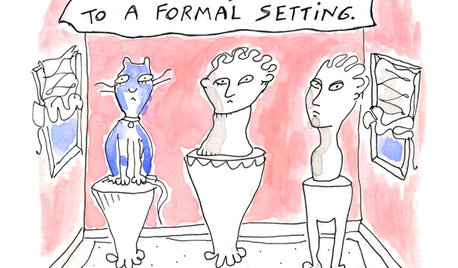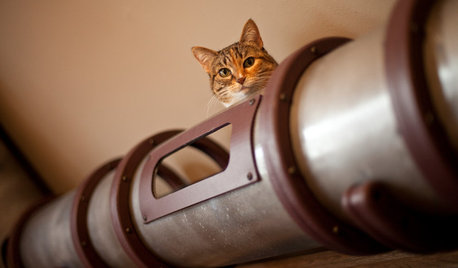cat with kidney problems... signs for the end?
Anne_Marie_Alb
16 years ago
Related Stories

REMODELING GUIDESThe Hidden Problems in Old Houses
Before snatching up an old home, get to know what you’re in for by understanding the potential horrors that lurk below the surface
Full Story
DECORATING PROJECTSHave Your Say With a DIY Decorative Sign
Express your thoughts in just the right amount of space with a hanging sign you easily make yourself
Full Story
LIFEFun Houzz: 14 Signs You’re an Interiors Geek
Are you obsessed with interiors? It’s OK, you can admit it — you’re among friends
Full Story
FUN HOUZZ12 Signs Your Coastal-Style Home May Have Gone Overboard
Accessories conjuring the beach often start innocently enough, but if you've framed your flip-flops, it may be time to reconsider
Full Story
PETSSo You Want to Get a Cat
If you're a cat lover, the joys outweigh any other issue. If you haven't lived with one yet, here are a few things to know
Full Story
PETSHouzz Call: Send in the Design Cats
Post your best photo of your cat at home, in the garden or with you in your studio. It could be published in a featured ideabook
Full Story
SHOP HOUZZHouzz Products: Create a Cat Heaven at Home
Show kitty you care and keep your style too with fun and cozy cat beds, perches, trees and decor
Full Story
MOST POPULAR7 Ways Cats Help You Decorate
Furry felines add to our decor in so many ways. These just scratch the surface
Full Story
FUN HOUZZGeek Lab: How to Build a Steampunk Cat Transit System
Give your kitty another avenue for fun with a tubular walkway system that lets him go his own way
Full Story
PETSGarden Alert: 22 Plants to Keep Away From Pets
Avoid potential danger by keeping dogs and cats away from these landscaping and houseplant favorites
Full Story




cynthia_gw
laurief_gw
Related Discussions
Possible kidney problem - possibly Previcox?
Q
18-year-old Cat with Kidney Problems - Takes no Meds
Q
17-year-old cat with kidney failure
Q
Kidney failure--cat
Q
Anne_Marie_AlbOriginal Author
laurief_gw
Anne_Marie_AlbOriginal Author
laurief_gw
Anne_Marie_AlbOriginal Author
laurief_gw
laurief_gw
lfnyc
laurief_gw
Anne_Marie_AlbOriginal Author
laurief_gw
Anne_Marie_AlbOriginal Author
laurief_gw
laurief_gw
Anne_Marie_AlbOriginal Author
laurief_gw
lfnyc
Anne_Marie_AlbOriginal Author
laurief_gw
dgmarie
Anne_Marie_AlbOriginal Author
laurief_gw
Anne_Marie_AlbOriginal Author
laurief_gw
laurief_gw
Anne_Marie_AlbOriginal Author
laurief_gw
laurief_gw
Anne_Marie_AlbOriginal Author
Kathy1231